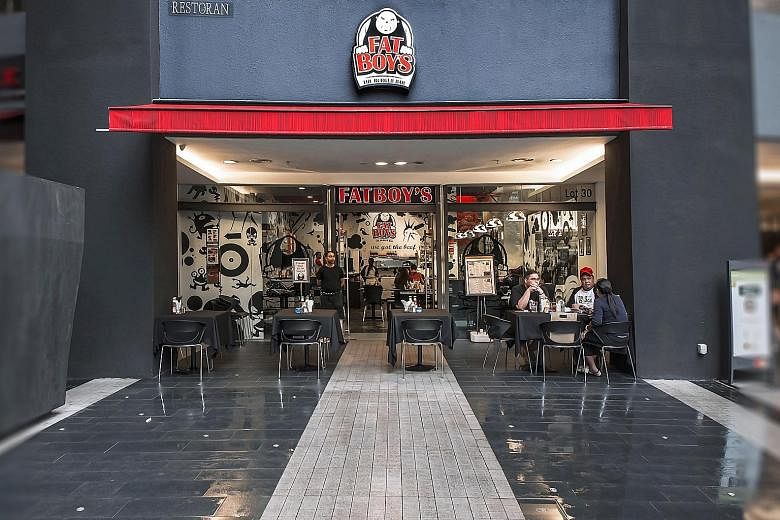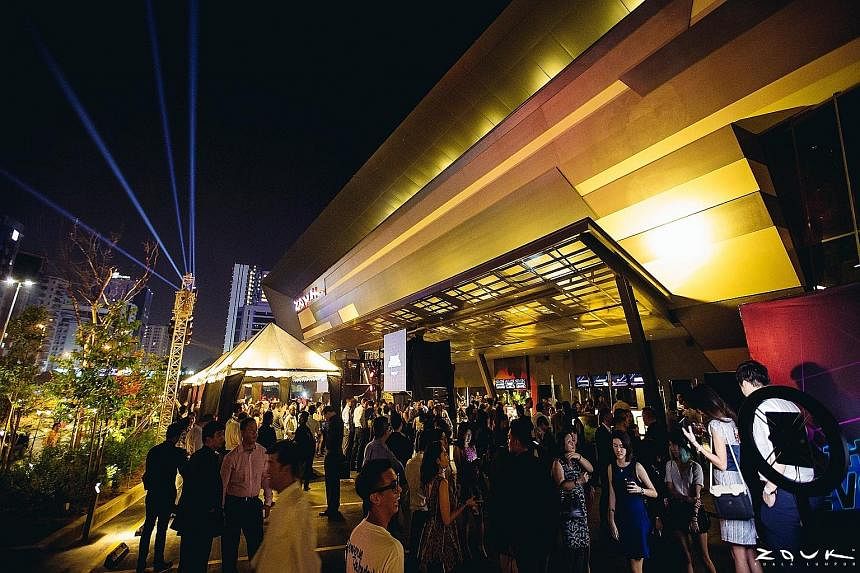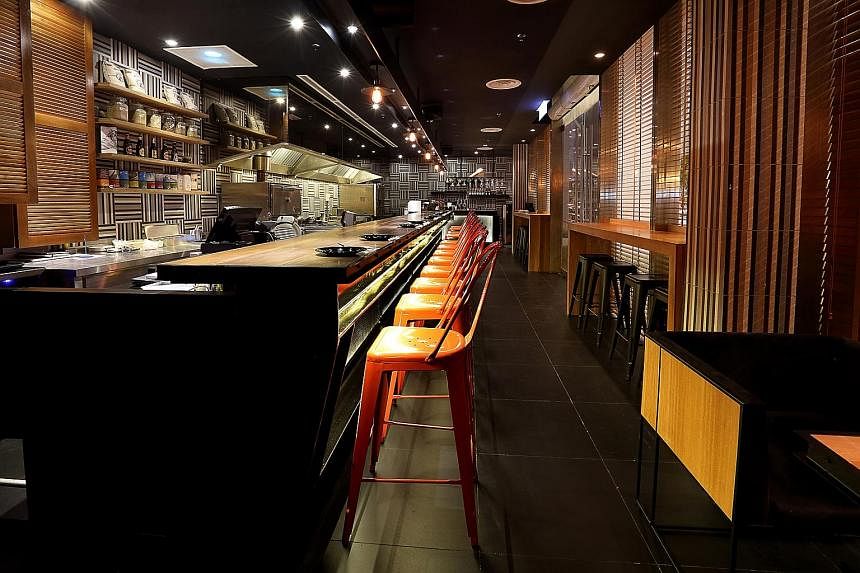Zouk might be Singapore's best- known nightclub, but it is the brand's outpost in Kuala Lumpur that is having its moment in the sun.
Ahead of Zouk Singapore's imminent move from Jiak Kim Street to Clarke Quay next year, the brand reopened the doors to its KL club recently, introducing excited partygoers to a new 106,000 sq ft, 11-room space at Malaysia's first lifestyle and entertainment enclave TREC, which is in Jalan Tun Razak.
Situated not far from the KLCC towers, the six-football-fields plot of land that TREC will occupy when the development is completed by the end of the year will showcase everything from cafes and fine-dining restaurants to clubs, bars and casual eateries, adding to the many entertainment options that can be found in malls around the area.
The opening of the US$10- million (S$14.2-million) superclub, which is the largest in Asia, is a bold move by a Singaporean brand in the Malaysian capital.
Zouk's move is part of a larger wave of local lifestyle and nightlife businesses entering KL's dining and nightlife scene, enticed as they are by its proximity to Singapore and lower overheads, as well as the access to a larger market.
Zouk, which first moved into KL in 2004, has been joined by other home-grown nightlife groups such as the Neverland Group and Massive Collective - both of which have two nightclubs in KL - and F&B brands such as burger bar Fat Boy's and speciality coffee joint Papa Palheta.
And soon to join the fray is popular lobster bar and restaurant Pince and Pints and nightlife brand Limited Edition Concepts, which owns club Kyo in Singapore. Both plan to open their first overseas outposts in KL in the coming months.
Pince and Pints founder Frederick Yap, 28, says that moving across the Causeway is a no- brainer.
"Given the easily scalable nature of our simple four-dish lobster menu, I had overseas expansion on my mind from the get-go," he says. "And given the geographical proximity to Singapore and larger population size of Kuala Lumpur, it was an obvious choice for our first overseas venture."
The 46-seater restaurant in Duxton Road - which recently took over the second floor of its shophouse space to accommodate local demand - will open its 1,800 sq ft, 55-seater flagship Malaysian outlet in the affluent neighbourhood of Bangsar on Oct 9. Pince and Pints invested $1 million in this outlet, which is a joint venture with a Malaysian partner.
There are plans to include a new lobster noodle dish to its RM158++ (S$53++) Malaysian prix fixe menu, concocted with local tastes in mind.
The upcoming move puts Pince and Pints in the same neighbourhood as other Singaporean businesses such as Fat Boy's and speciality coffee store Pulp by Papa Palheta, all of which have set up outlets in cafe-friendly Bangsar.
In fact, the growth of trendy neighbourhoods in KL and the young, fashionable crowds they draw is another reason local businesses move across the border.
Mr Yap says: "I was getting requests from Malaysian patrons to bring the restaurant to KL, so I knew the demand was there. Plus, the bigger population is a definite draw as it'll allow us to open two or three new outlets within the year, something we can't do in Singapore."
His lobster distribution business, which is a separate entity from the restaurant business, is expanding due to the larger Malaysian market too.
A 3,000 sq ft storage and distribution warehouse facility has been set up in KL, which will house nine of his custom-designed filtration tanks - a level up from the 1,000 sq ft space and two tanks that the restaurant relies on in Singapore.
"We currently supply lobsters to more than 20 restaurants and hotels in Singapore, but the bigger market in KL will help us take our distribution business to the next level," he says.
And like it is for Pince and Pints, Malaysia's larger market is also a pull factor for other local business owners who are choosing to expand across the Causeway.
For co-owner of burger bar Fat Boy's, Mr Bernie Tay, 42, the larger population in KL is what has allowed the business to open five outlets in the capital since entering the market in 2012, including its first halal outlet in Bukit Bintang in February this year.
He says: "Because the market is larger and our overheads for rent and labour are approximately 50 per cent lower than Singapore's, we can expand quickly and benefit from higher margins without saturating the market."
Fat Boy's serves 300 patrons on average daily an outlet and saw a gross turnover of $5 million last year.
Papa Palheta's owner Leon Foo, 33, also lets on that his overheads for his flagship Malaysian store, Pulp, which he opened last year with an investment of RM1 million in paid-up capital, are approximately 15 to 20 per cent lower than those in Singapore.
But despite the obvious advantages such as cheaper labour and lower rentals, Mr Foo admits that expanding into KL can be a double- edged sword.
"Even though Singaporean businesses have a reputation for high quality and standards, Malaysia has a strong culture of supporting its local brands," he says. "It becomes important therefore to time your entry carefully, do your research and embrace local culture when entering the KL market."
To this end, he advises working closely with Malaysian partners to understand the different regulations - a sentiment that was echoed by all the other businesses interviewed by Life.
Mr Foo says: "Even though you have the advantage of a less competitive market than Singapore and a culturally similar demographic, it's still important to work with your partners to time your entry carefully so that you are not battling too many established brands."
Besides finding strong partners, co-founder of Massive Collective, Mr John Langan, 33, also advises local businesses to have an exit strategy in place, considering profit margins are not necessarily as large in Malaysia as in Singapore.
Nightclub Vertigo - the nightlife group's first venture in KL - was voted best club in Malaysia in 2012 but closed last year after a three-year run.
It currently operates nightclubs Providence and Rootz and tapas bar and restaurant Ohla in KL.
"Because of the constant entry of new concepts in KL, it's sometimes not worth the gamble to start something unless you're out to do something big," he says. "You also have to consider factors such as the depreciating ringgit, which can affect businesses like ours that purchase imported products."
Still, despite the uncertain economic climate in Malaysia, home-grown brands such as nightclub Kyo are going ahead with their plans to open in KL. Kyo is targeting its KL launch in the first half of next year.
And though Mr Godwin Pereira, 40, director and co-founder of Limited Edition Concepts which owns Kyo, declines to give details about the new venture at press time, he says that the group was excited about its upcoming move, even though the efficiency of doing business in Kuala Lumpur is "subjective" compared with Singapore.
"It's a city that most Singaporeans have a connection with," he says. "That's what sealed the deal for us when deciding on KL as the location for our first overseas venture."



